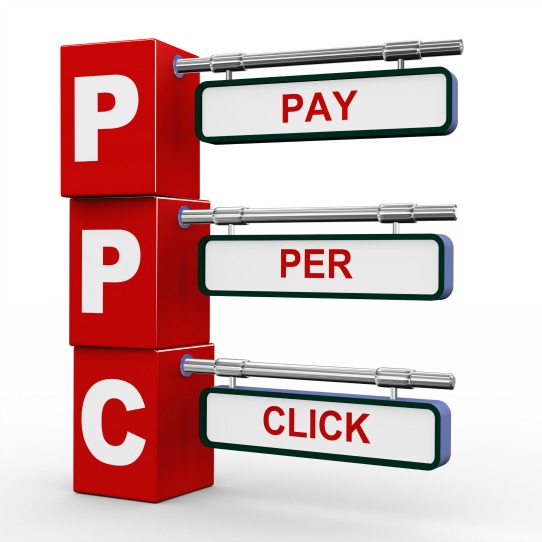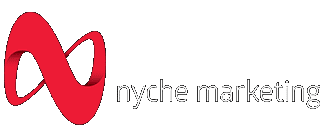Table of Contents
What is Pay Per Click (PPC) Advertising?
When I’m talking with business owners about pay per click, a lot of them think I’m talking about paper clips :). As an internet marketer, “pay per click” (PPC) is much more exciting and useful to your business than paper clips!
You’ll find PPC ads available on most search engines (aka Paid Search or Search Engine Marketing (SEM)) and social media sites (Social Advertising). The most well known are Facebook display and video ads and Google Adwords search engine text and display ads. Besides PPC advertising, there is also a variety of other digital advertising channels online, visit this site to learn more .
Here are some common networks you can advertise using PPC campaigns:
Facebook and Google are the two largest networks to run PPC ads on, and they’re the two we’re going to focus on in this article, but there are many other platforms that offer PPC services. You can click on the links below to find out more about each platform’s PPC options.
Linkedin
Bing search engine
Twitter
Pinterest (promoted pins)
Instagram (where video ads cost as little as 2 cents per view)
Snapchat (video ads)
Pay per click ads are a revolutionary advancement in advertising, because instead of traditional advertising (like a newspaper, magazine, TV or radio) that you *hope* your target audience would see, you can use micro targeting to show your ads only to people who are already searching for (or interested in) your product!
Then the really cool part is you only pay when someone clicks on your ad – hence the paying per click! This means that the people who click on your ad are very interested in what you’re offering. Unlike traditional advertising where you aren’t sure if the person seeing it is interested, with PPC ads, you know that if someone clicks the ad, you have peaked their interest in some way.
That said, PPC isn’t going to guarantee you sales! It’s possible to sink money into ads that don’t convert into quotes and sales, so keep reading to find out how PPC works and how to use it.
Pay Per Click – Micro Targeting and Why it is Important?
If you clicked on any of the links above that take you to each platform’s ad types, you’ll see that one of the first things you get to choose is who you want to target.
Based on what kind of information each platform collects from its users, you will have a huge range of ways to narrow down who you want your ad to appear to. Pinpointing your target market is key to a successful paid search account. For example, Twitter allows you to target people based on their interests, location, users who are similar to them, and type of device.
Since Facebook knows so (frighteningly) much about its users, you can get very specific with your targeting. Here’s a list of some of the qualities you can target for with Facebook ads:
Age,
Gender,
Demographic information,
Location,
Likes and dislikes,
Interests,
Pages they follow,
Time of day they usually browse Facebook,
Relationship status,
Education,
What type of work they do and more
Micro targeting is important because it allows you to put your message in front of your target market who are likely to be interested in your offerings. Instead of putting money into advertising without knowing who’s seeing it, with PPC, you can know exactly who’s viewing it.
What is Google Adwords?
Google Adwords is the most popular PPC platform, so it’s a great place to start. Here’s a quick video explaining how it works:
The internet is full of jargon, so here are a few terms you should get familiar with if you’re working with Google Adwords:
What are Facebook Ads?
Facebook offers PPC ads as well where you can create ads and then pay for them on a per-click basis. PPC campaigns on Facebook are simple to create and use.
You make a Facebook page for your business
Create a Facebook account for yourself
Create an ad (or several ads)
Determine who to target with your ads
Choose how much you want to spend per click
Run your ads!
Here’s a tutorial that will show you the basic steps and give you an idea of how it works:
The great thing about Facebook targeting, which I mentioned earlier, is the ability to target a very specific audience. One way to do that is by targeting people who like pages that are similar to yours.
For example, imagine you are a home renovation company that builds garages and fences. With Facebook, you can target people who like a particular home builder like the Jayman Facebook page. If they like this home builder’s page then they have either bought or are thinking about buying a new home, so putting your ad in front of that person could make a conversion more likely.
Other Paid Advertising Networks
We only expanded on two of the networks you can advertise on, but there are dozens and dozens of paid advertising networks out there, here is a list of 100 of them and advice on choosing the one(s) that work for you.
Why Should I Use Pay Per Click (PPC)?
You might think of traditional methods of advertising, like yellow pages, radio, tv and print ads, as the tried and true way to build awareness and gain customers. Online advertising hasn’t been around that long, and it’s understandable that business owners might not want to invest money in a fad.
Well, PPC is not a fad. It’s going to be around for a long time because it works! Here are some of the reasons why businesses love PPC:
- Although we love and promote websites using search engine optimization (SEO) – SEO takes longer time to work. One of the ways search engines rate your website is how long it’s been around, so in the meantime, PPC can be a way to drive traffic quickly to your website.
- It’s is a great alternative to traditional ways of advertising because of your ability to target and micro target your audience.
- You can control your budget and know exactly how much you’re spending each day.
- It is highly trackable. You can see how many clicks you’re getting, when you’re getting them, and who is clicking, and more!
- You can test and measure the effectiveness of your landing pages quickly, then make tweaks based on whether or not they’re converting.
- You can use PPC to test out other business related things like book names too! Tim Ferriss, the writer of The Four Hour Work Week used PPC to test different titles for his book. He posted ads for the book with two different names (the other was “Drug Dealing for Fun and Profit”) and went with the book title that got the most clicks. (Read more about the book here)
How Do I Do Pay Per Click (PPC)?
There’s a lot to know with PPC campaigns, so it’s hard to know where to start. Rather than looking through a bunch of articles on the internet (because there are lots of them), get the information right from the horse’s mouth, aka Google.
Take Google’s beginner course for Adwords. It’s going to take a fair chunk of time to get through, but if you’re doing PPC on your own, it’s extremely valuable. Here is the Google course link to get you started.
Facebook has a similar tutorial section where you can learn the basics and get started. Click here to get started with Facebook Ads.
To be successful with your PPC campaigns, here are some tips based on our experience:
- Have specific landing pages. The #1 mistake I see when reviewing client PPC campaigns is that they send people to the home page! Match the ad to specific landing pages. Same copy, images, themes should reside on the landing page as in the ad.
- Use specific keywords rather than broad match keywords. Rather than using “roofing” as an example use something more specific like “residential asphalt roof repairs.” Then, when people click when your ad, make sure they land on the web page that describes “residential asphalt roof repairs.”The more specific your ad is, the greater the chance is that the person who clicked on it will contact you.
- Run A/B split testing on your ads. This is where you run two ads for the same thing with different text and see which one gets more clicks and conversions.
How Do I Know If My PPC Ads Work?
The biggest thing to ensure is that you are getting a positive return on your investment (ROI) – for instance if you spend $1000 a month in advertising budget and management costs and in return you generate $5500 a month (on average) in new business, your ROI will be over 5 times the costs or 500% ROI! That would be an investment we would advise you to continue for a long time!
For Google Adwords, there are some key metrics to look at when you want to evaluate how well your campaigns are doing. They are Click-through Rate (CTR), Quality Score, Conversion Rate, Cost Per Click (CPC), and Wasted Spend.
Find out more about these metrics in this article: 5 Key Metrics to Measure the Success of Paid Search Campaigns.
You can measure the success of your Facebook ad campaigns by accessing your Facebook ad reports and looking at a few important numbers.
Read How to Measure Facebook Advertising Success: Monitor These 5 Metrics for more info.
What if you could have a steady stream of customers coming to your website – on demand?
With a properly tuned and optimized PPC campaign, you can know exactly how much website traffic to expect on a day to day basis.
Imagine having consistent, reliable leads coming in from your ads. For example, if you are a painting company and you know that generally one out of four people who click on your ad will call you for a painting job and, say, 15% of them will commit. With PPC you can forecast your sales and know how many customers to expect in the future.
But as great as PPC is, it’s not a replacement for great SEO. A holistic approach like my Living Website system covers all the moving parts of our online marketing strategy that we provide to home contractors. PPC is just one of those parts, along with content marketing, social media, marketing automation, and SEO.
Pay Per Click (PPC) Summary
PPC campaigns can really pay off! You have so many options of which advertising networks to use, how much you want to spend on each ad, and exactly who you want to advertise to (with targeting and microtargeting).
Here are a few stats to get you even more excited about setting up PPC:
- Mobile devices account for 53% of paid-search clicks – So make sure to set up ads that will appear on mobile devices and link to mobile-friendly landing pages
- The very first Google AdWords ad goes went live in 2000. The ad was for LIVE mail-order lobsters!
- Make sure your ads have your phone number–69% of searchers on smartphones call businesses straight from Google Search
Read more interesting stats and trends for PPC here.
So what are you waiting for? Give PPC a try and see how well it works for your business. Nyche Marketing can help you get started and even run your campaigns for you. At nyche marketing, we know how to optimize your ads and coordinate them with the right landing pages. With PPC as part of your online marketing strategy, you add a crucial element to your online presence.
Trackbacks & Pingbacks
-
[…] What is PPC? […]
Leave a Reply
Want to join the discussion?Feel free to contribute!





Thank you for sharing ideas about PPC. Keep posting!